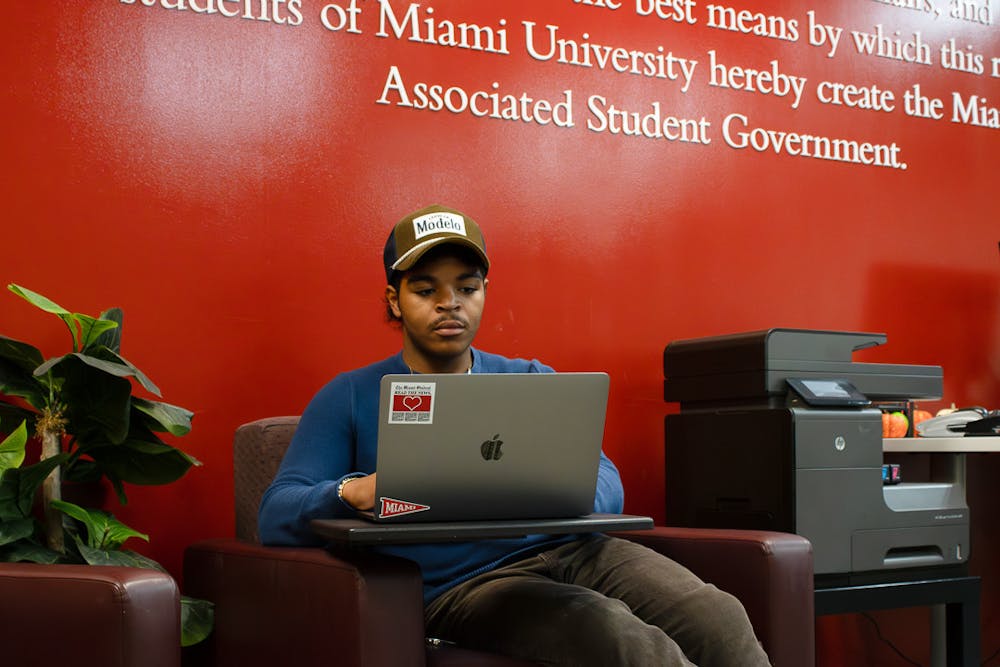When looking at the over 600 clubs on campus, it shouldn’t be surprising to hear that Miami University has a student government. But it may shock you to learn that out of more than 16,000 undergrads, only about 50 students took the oath of office to serve the student body.
The Associated Student Government (ASG) operates similarly to our national government with an executive and legislative branch. This divide designates a small portion of ASG members to execute the roles of a secretary or other senate leadership positions, and the rest are appointed senators, members of the legislative branch to either district (regions on campus) or to an academic college (i.e. College of Arts and Science, Farmer School of Business, etc).
This separation allows senators to write legislation that they think will benefit the student body, and for secretaries to officiate the background work required for physically executing that legislation so it becomes tangible.
As one of the senators of District 8, I represent the students residing in the majority of North Quad residence halls. This means I must report student concerns, sit on multiple one-hour committee meetings and attend the three-hour-long senate meeting held every Tuesday.
In other words … it’s never a dull day.
While ASG has taken up a decent chunk of time from my week, it’s only because we student politicians do honest work.
Before even starting my official senatorial position, I had to get 35 student signatures, gain approval of a campaign petition, win an election and read more than 75 pages of rules and bylaws for procedural processes taken within the senate.
After being elected, I decided to sit on three committees this year: on-campus affairs, safety and wellness and an additional ad-hoc committee. Most of the work I do within these committees is external facing, or student-related issues, with the exception of the ad-hoc committee that focuses on the restructuring of ASG’s executive cabinet.
Throughout these one-hour committee meetings, it’s my responsibility to evaluate student concerns, plan out invitations that students can interact with and collect information on resources to help my peers.
Sure, having several meetings a week on top of 17 credit hours may seem like a lot, but when I look back on the amendments and bills with my name on them, I am proud of the change I’ve helped incite.
My work done through this organization has contributed to things like inclusive communication training, funding for all 600+ student organizations and even issues concerning dining. Every week I get to be a part of real change on campus.
Sure, it may be monotonous and somewhat pretentious to have a 100-page book of conduct and procedure, sit in a row of tiered seats and refer to my peers by their official elected title, but it’s not that bad.
Enjoy what you're reading?
Signup for our newsletter
I enjoy opening my email every Sunday and seeing the various events and tasks on the “consent calendar,” as well as the never-ending Slack messages pleading for people to sit and table around campus.
This nonpartisan organization has allowed me to connect with people pursuing politics, law or even creative direction. ASG is a melting pot of students driven by students interested in government (and not), people dedicated to helping their community, but above all else, kids who can’t believe they agreed to a three-hour weekly meeting.
youngk2o@miamioh.edu
Kiser Young is a sophomore, with majors in strategic communications and journalism. He’s this year’s social media editor for The Miami Student and is also senator for Associated Student Government. In his free time he enjoys a quality night out and working on his dj skills.




